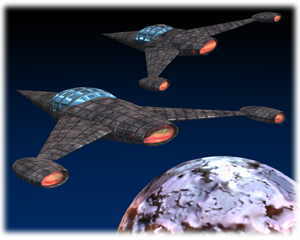|
TITAN BY STEPHEN BAXTER (Review by Nick Gevers, Ph.D., Cape Town, South
Africa)
Stephen Baxter, like Greg Egan, is a
magician of Hard SF. From the outside, his books look doughtily conventional, with their
monosyllabic titles, star- and spaceship-strewn covers, and blurbs and endorsements
suggestive of the Tom Clancy technothriller or the Larry Niven space opera. But Baxter is
British, not American; his literary models also include Wells, Stapledon, and Clarke,
whose philosophical melancholy is at odds with easy free-market optimism, with unambiguous
us-versus-them morality and glib technospeak. Baxter, having produced a sweeping
five-volume cosmic future history (the ‘Xeelee’ series) and two steampunk
pastiches of the Victorian Scientific Romance (Anti-Ice and The Time Ships),
has in the last two years turned to thrillers of NASA in space, but they are thrillers of
an ironic savagery rarely seen in SF. They celebrate space travel; but simultaneously they
explode it, as an exercise in impotence.
Voyage (1996) seems like The
Right Stuff all over again. In an alternate timeline, the US Space Programme of the
1960s and 1970s keeps its nerve, going on from the Moon to Mars. There are heroics,
frenzied inventiveness, skullduggery in Washington, much brandishing of NASA’s
beloved acronyms. This is how it should have been, the reader thinks, the dreams come
true. But Baxter is in fact declaring: this did not happen; Mars missions were never
realistic; we would have lost the space shuttle, the unmanned probes, orbital satellites,
all sacrificed to budget a one-off forty-million mile jaunt. The Right Stuff was a
myth, propaganda, escapism. The reality, Voyage implies, is otherwise. The reality
is Titan.
Titan (1997) is not a sequel to Voyage,
except in a thematic sense. But the continuity of theme is deliberate, and searing. No
alternate world now: we see our early Twenty-First Century, the one stemming from
the mistakes we have already made. In this future, the Space Shuttle programme is being
abandoned. The background is this: the superstitions of New Age mystics and the
fundamentalism of the religious Right have combined to sweep scientific funding off the
world’s agenda, and a new Dark Age of ignorance and reaction has set in. The Internet
is being shut down. With irrationalities like nationalism burgeoning, the Cold War between
America and China threatens humanity’s extinction. Perhaps salvation can come from a
bold space venture: a brave few undertake a mission to Saturn’s moon Titan, hoping to
find life there, hoping to inspire the world to a renewed faith in Science. But this is
too late. The mission is ignored by the rest of us, forgotten even as it occurs; its
members die, some in space, some on Titan. Meanwhile, the misuse of space travel brings an
asteroid into collision with Earth, and all life ends. The implication, that we have
wasted our scientific capital, that we have used technology so blindly and selfishly as to
doom ourselves where moderation and sense might have allowed a Golden Age, is made by
Baxter with a cruel ironic morbidity. That the novel’s concluding section shows
aliens native to Titan setting off for the stars billions of years hence, observed by two
resurrected humans, is just a final twist of the knife in the wound: the aliens avoid our
mistakes, their preservation of some of our genetic heritage is a charity, they shall
inherit the Galaxy.
Titan is a ferocious nightmare of
the near future, in a thriller’s clothing. And it dismays thoroughly, as its
prerequisites, says Baxter the psychopomp, are already in place.
HARPER COLLINS/VOYAGER (UK). 1997.
HARDCOVER  
Explorations will be
updated regularly.

|
![]() Get your own Free Home Page
Get your own Free Home Page